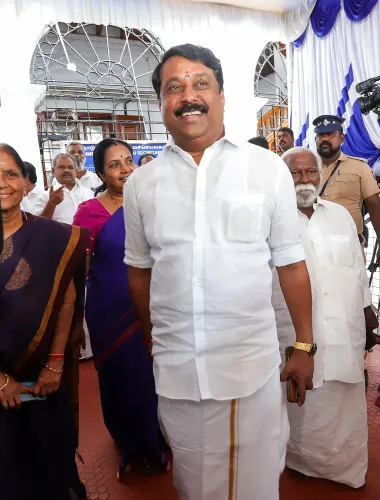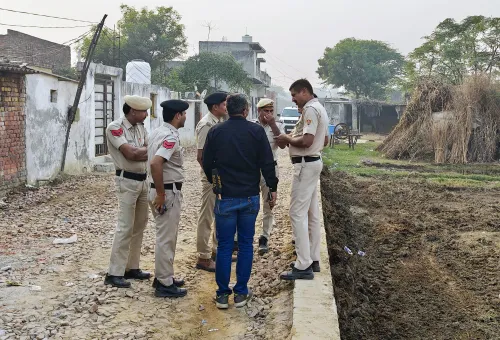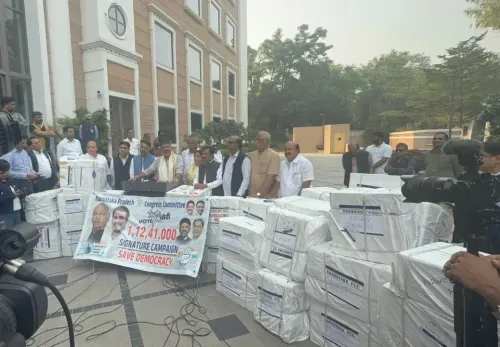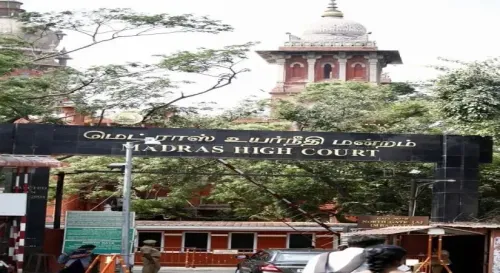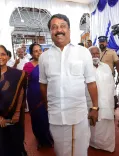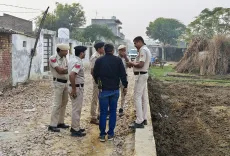Why is BJP Criticizing Congress Over Tharoor's Remarks?
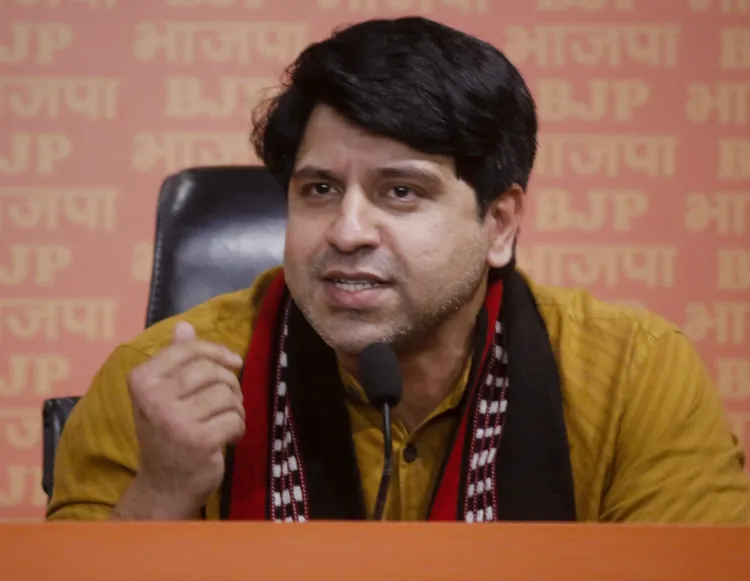
Synopsis
Key Takeaways
- BJP's Shehzad Poonawalla defends Shashi Tharoor.
- Tharoor's remarks on security policy spark controversy.
- Udit Raj's criticisms highlight party political tensions.
- Poonawalla accuses Congress of hypocrisy.
- Historical context is crucial in the current debate.
New Delhi, May 28 (NationPress) BJP spokesperson Shehzad Poonawalla on Wednesday launched a strong attack against Congress leader Udit Raj for labeling Lok Sabha MP Shashi Tharoor as the "super spokesperson of the BJP." Poonawalla questioned the Congress's apparent discomfort with Tharoor’s remarks, which he argued highlighted national interest over party politics.
The controversy ignited when Tharoor, who is heading a multi-party delegation in a global outreach initiative, made statements during his visit to Panama regarding India’s shifting security policy. He noted that India’s approach to terrorism has evolved, emphasizing that terrorists now recognize they will face repercussions for their actions.
In a sharp retort, Udit Raj took to the social media platform X to criticize Tharoor’s comments.
In a post, Raj stated, “My dear @ShashiTharoor. Alas! I could prevail upon PM Modi to declare you as the super spokesperson of the BJP, even declaring you as the foreign minister before landing in India. How could you belittle the rich history of Congress by suggesting that prior to PM Modi, India never crossed the LoC or international borders? In 1965, the Indian Army entered Pakistan at various points, catching the Pakistanis by surprise in the Lahore sector. In 1971, India divided Pakistan into two, and during the UPA administration, several surgical strikes were executed without politicization. How could you be so dishonest to the party that provided you so much?”
In defense of Tharoor, Poonawalla accused Congress of hypocrisy.
Speaking to IANS, he remarked, “When Pakistan is exposed on the global platform, why does Congress experience discomfort? Is it because Tharoor is prioritizing national interest over party lines? If someone speaks for India, does that automatically imply they speak for the BJP? Why is Tharoor being attacked for stating the truth?”
Poonawalla further claimed that Rahul Gandhi had directed Udit Raj to criticize Tharoor.
“This is not merely about party politics. Tharoor is addressing national policy, not party ideology. His statement is not problematic. If commending the Indian Army and calling out Pakistan’s actions makes someone anti-Congress, then the party should reflect on itself,” he added.
He continued, “If Congress has issues with anyone advocating for India or criticizing Pakistan, what does that reveal about them? It seems Congress is acting like a Pakistan Prashast Party (PPP) or an online platform for Pakistan.”
Poonawalla also commented on BJP MP Nishikant Dubey’s recent assertion that former Prime Minister Rajiv Gandhi had requested then-US President Ronald Reagan to mediate between India and Pakistan.
“Dubey has revealed how Congress, during its governance, engaged in foreign-mediated discussions with Pakistan, despite claiming otherwise. Rahul Gandhi is misleading the public by denying these historical truths,” he said.
He cited additional instances from India's history to question Congress's management of national security issues.
“Former Deputy Prime Minister Jagjivan Ram urged then Prime Minister Indira Gandhi to reclaim Pakistan-occupied Kashmir or Kartarpur during the 1971 war. However, under pressure, Indira Gandhi consented to a ceasefire. We also relinquished significant territory to Pakistan in the 1960s. Why are these issues not being addressed?” Poonawalla questioned.
The BJP leader concluded by probing the Congress's historical decisions.
“Who surrendered PoK? Who disregarded Sardar Vallabhbhai Patel’s recommendations? Had Patel’s advice been taken seriously, we might not have the PoK dilemma today. And why did we turn to the United Nations regarding this matter? These are the pressing questions Congress must answer,” he concluded.

